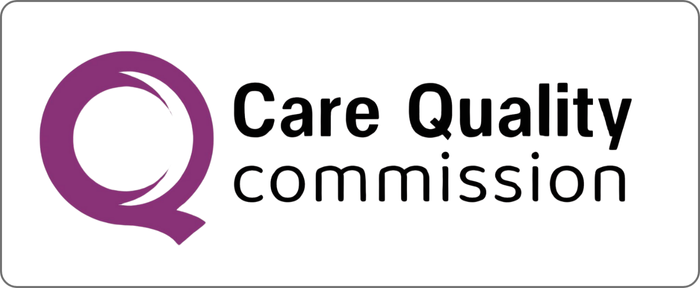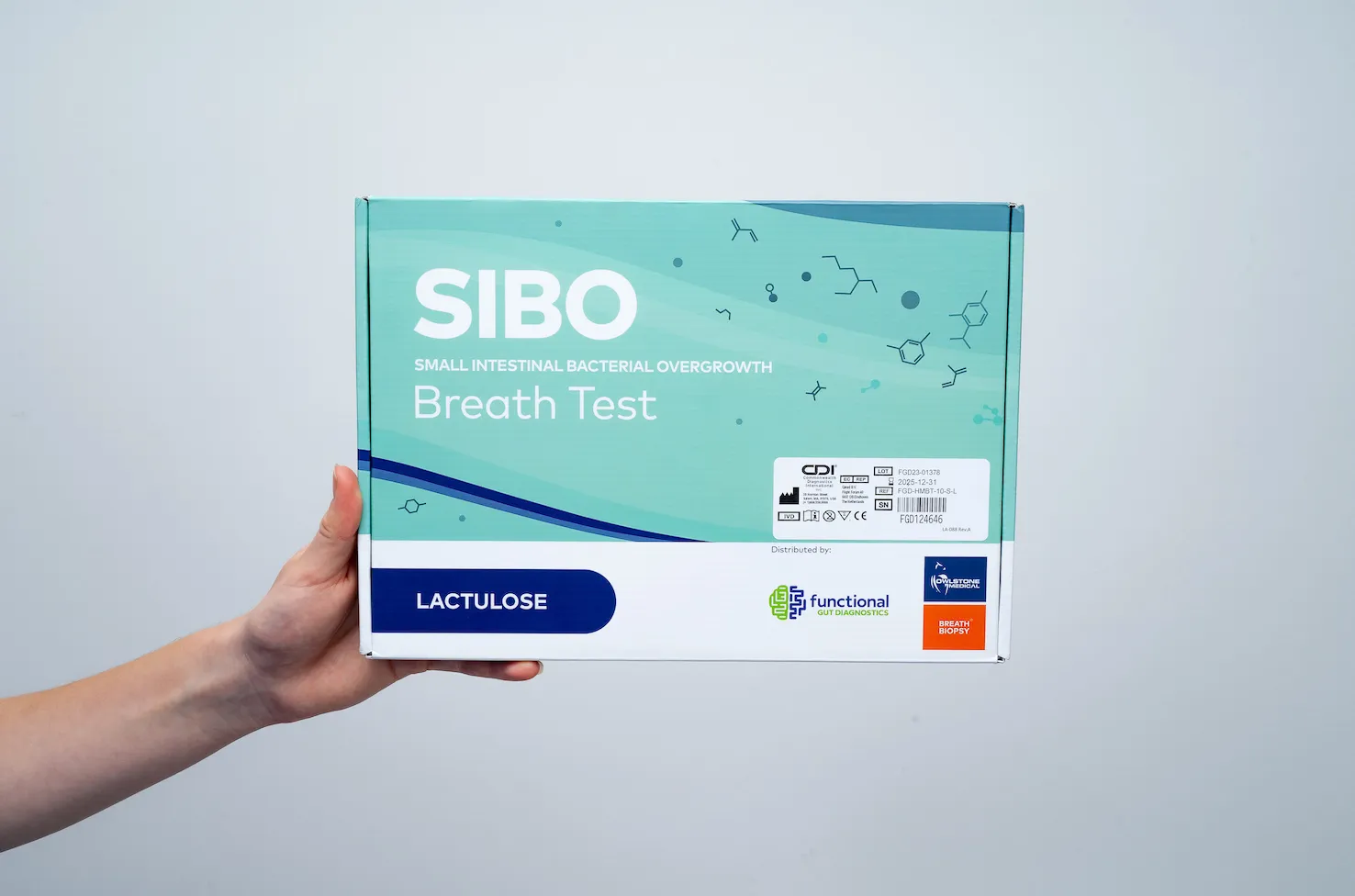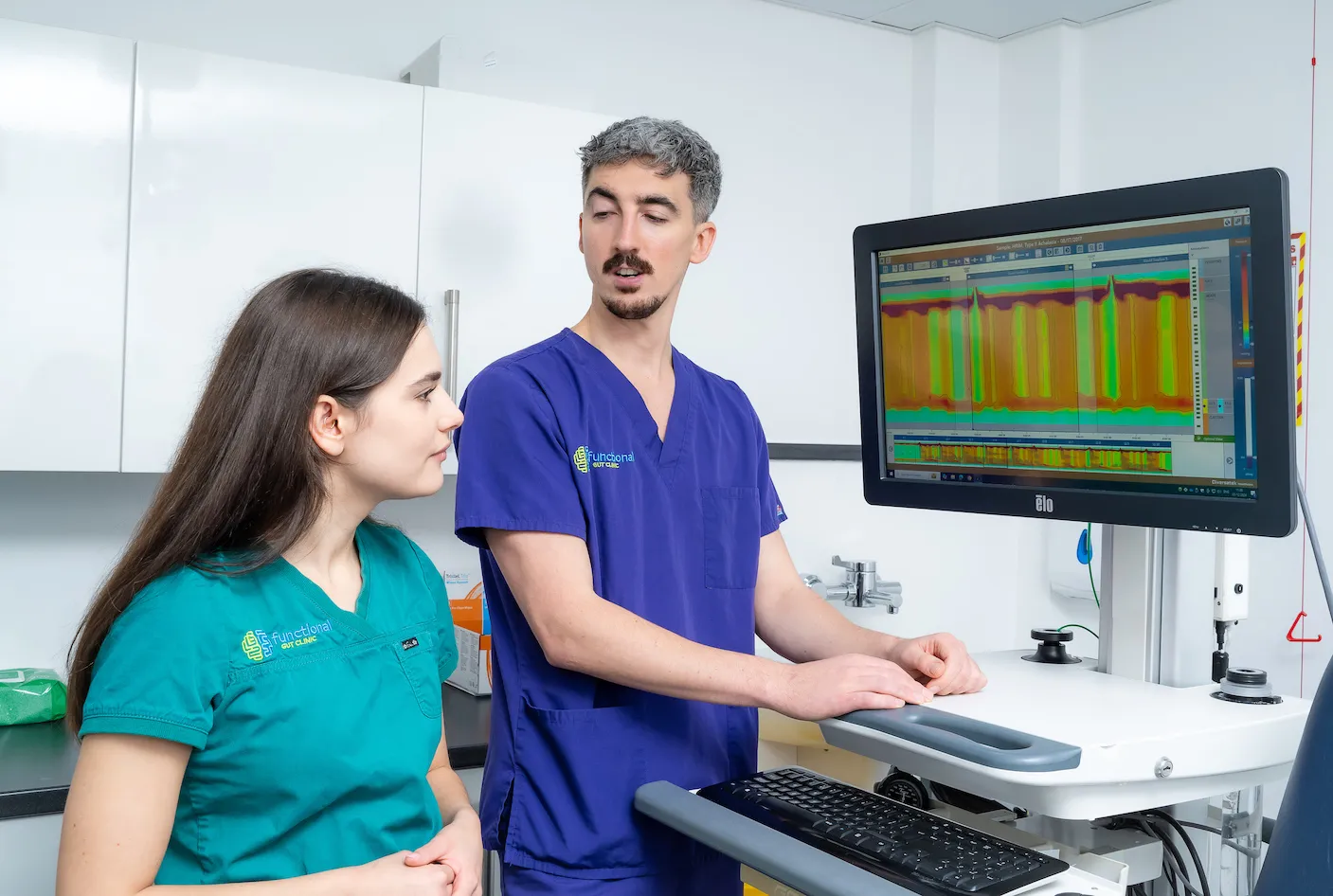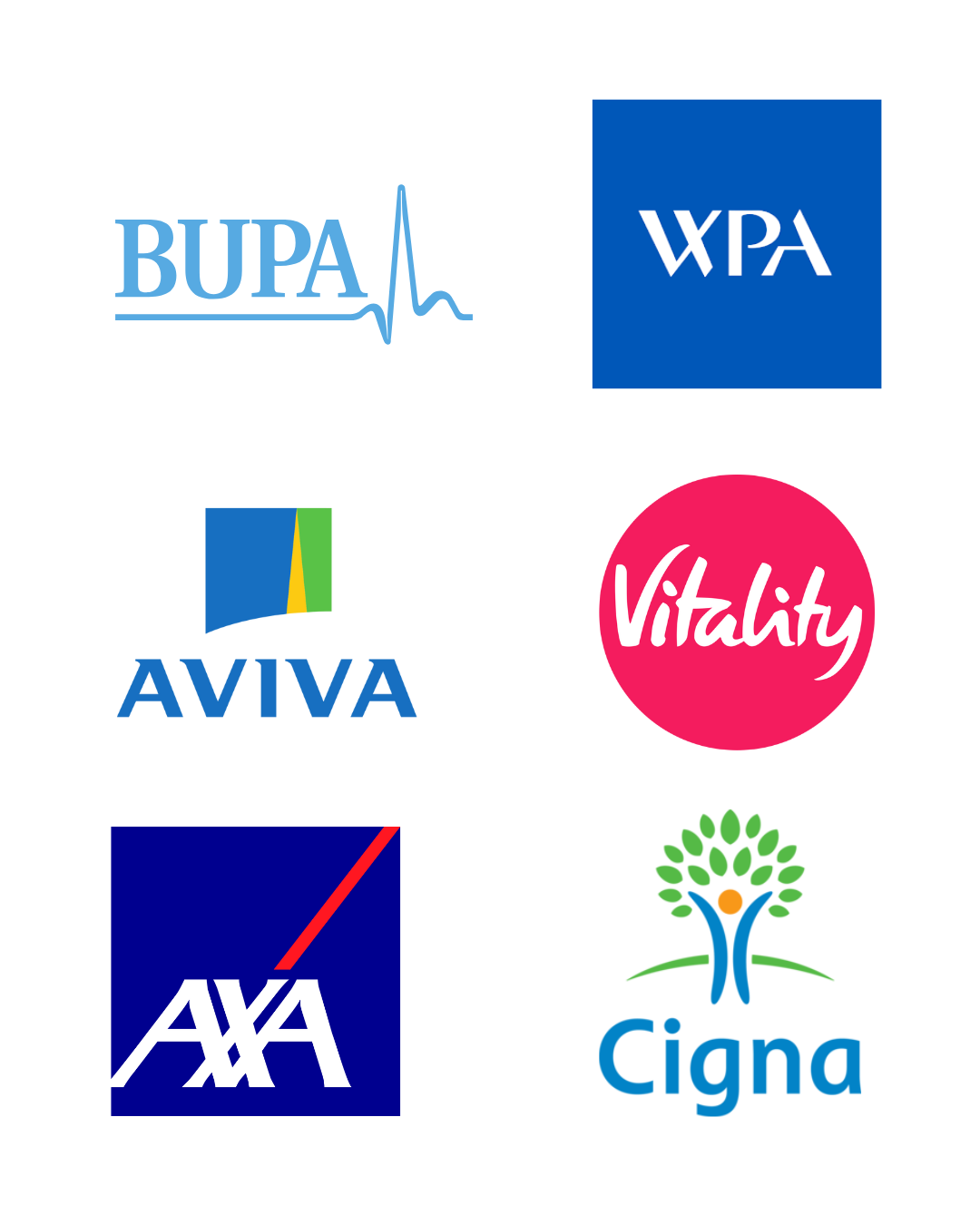Small intestine bacterial overgrowth tests
For symptoms such as diarrhoea, nausea, bloating, gas and abdominal cramps, this test detects abnormal growth of bacteria in the small intestine.
ALL TEST ARE ACCREDITED & REGULATED BY



What is a SIBO breath test?
Hydrogen and methane breath testing is a widely accepted means of identifying changes to the gut microbiome and is used to detect abnormal growth of bacteria in the small intestine, or small intestinal bacterial overgrowth (SIBO).
You may be referred for this test if you are experiencing symptoms including diarrhoea, nausea, bloating, gas and abdominal cramps.
How it works
Due to change in guidelines, smoking is not permitted 24 hours before your test.

You will provide an initial breath sample by blowing into a test tube through a straw, or into a breath collection bag, which will give us your baseline reading.

You will drink water with glucose or lactulose within 1–2 minutes. Breath samples will be taken every 15 minutes for just over two hours to measure hydrogen and methane.

During the test, you should take note of any symptoms you experience and complete the symptom form, which will then be interpreted alongside the data collected by a clinician.
Download the information leaflet
Preparing for your test
Before you test, there are some things we ask you to do, to ensure safety and accurate results. This includes stopping certain medication and fasting for a short period.
Please read our patient information leaflet for full details.
4 weeks before your test
Do not take any antibiotics.
2 weeks before your test
Do not take GLP-1 injections
1 week before your test
Do not take laxatives or stool softeners (Movicol, Dulcolax, Ex-Lax, Senna, Milk of Magnesia etc.)
Do not take stool bulking agents (Metamucil, citrucel etc.)
Do not take motility agents
(Prucalopride, linaclotide etc.)
Do not take probiotics
(VSL#3, Actimel, Yakult etc.)
Do not take GLP-1 tablets
You can continue taking any other essential medicines. Additionally, there must be a period of one week between any tests which require cleansing of the bowel e.g. colonoscopy, barium enema, before having a breath test.
2 days before your test
No anti-diarrhoeal medication (e.g. Loperamide (Imodium))
The day before your test
You must follow the ‘white food diet’ which consists of only the following foods and drinks:
• Plain white bread
• Plain white rice
• White potatoes (no skin)
• Baked/grilled chicken, turkey, lean beef, lean pork, white fish (no oily fish)
• Maximum of 2 eggs
• Water (non-carbonated)
• Non-flavoured black coffee (no milk)
• Non-flavoured black tea (no milk and no herbal teas)
• 1 tbsp butter/margarine/oil
• Salt to flavour food
Do not eat or drink anything else, eating prohibited foods could give false results for the test.
For 12 hours before your test
You must stop eating and drinking and fast for 12 hours before your test.
The day of your test
You can have small sips of water (maximum of 300ml) until the start of your test
You may take your essential medicines with a small amount of water
You may brush your teeth
Do not eat, drink, chew gum, smoke, eat breath mints and/or other sweets on the morning of or during of your test.
ⓘ If you are diabetic requiring insulin or diabetes medicine, please ask your doctor if you should change your morning dose. Oral hypoglycaemic medicines are usually not taken that morning until completion of the test and you start eating again.

Getting your test results
The results will be displayed as a line graph that can be analysed by our clinical team to see if you've got small intestinal bacterial overgrowth.
Following your test, your data will be analysed and results written up into a report.
The report will be sent to both you and your referring consultant/doctor, who will explain the results to you in a follow-up consultation.
Paying for your test
Self-paying: If you are paying for this test yourself and not through insurance, the cost will be £250.
This cost includes, cost of the postal kit, analysis and the report.
In clinic testing is available, with an additional fee.
Insurance coverage
If you have private medical insurance, most companies can cover this for you.

After the Test (Post-Procedure Care)
There are no restrictions following the test. Once you have collected and returned your sample, you can continue your usual diet, medication and activities.
Your results will be reviewed by our clinical specialists, and your report will be sent securely to you. Follow-up consultations are available if you would like further discussion and support.
Frequently Asked Questions
Can I do this test whilst pregnant?
Yes, this is a safe test with no associated risks. However, patients should inform their GP/doctor to ensure they are happy to continue.
Do I need to fast before the test?
Yes. You need to fast for at least 12 hours before the test. You should also follow a strict low-fermentable diet on the day before the test.
What foods can I eat on the day before the test?
- Plain white bread
- Plain white rice
- Plain white potatoes (no skin)
- Baked or grilled white meat or fish (no oily fish, no skin)
- Firm or extra firm tofu
- Eggs (maximum of two)
- Water
- Non-flavoured black coffee or black tea (no milk)
- Only salt may be used to flavour your food
- A little butter, oil or margarine is permitted (1tbsp)
No other foods or drinks are allowed.
How long until I get the results?
Once the kit arrives back to our lab the results will typically be available within 3 working days.
Is the test straight forward to complete on your own at home?
Yes, the test is very simple to complete with clear instructions. Ensure you are comfortable giving breath samples before starting as doing this incorrectly will result in inconclusive results.
What is the difference between SIBO Lactulose and SIBO Glucose?
Lactulose is a synthetic sugar which is not absorbed in the small intestine. This means it can detect SIBO throughout the entire small intestine and is more sensitive than glucose. However, it is more likely to give a false positive result than glucose due to this increased sensitivity. It does not cause blood sugar to rise since it isn’t absorbed.
Glucose is well absorbed early in the small intestine, meaning it can miss SIBO present in the lower part of the small intestine and give a false negative result. It is however more specific than lactulose so can be more certain a positive result is a true positive.
Which test is best out of the two? Lactulose is usually recommended due to its higher sensitivity unless the GI tract is altered due to past abdominal surgery.
If I self-refer and I am positive for SIBO – how do I go about getting the treatment for SIBO?
If you are positive for SIBO, we have a list of consultants that we work with that we would recommend for you to contact to receive treatment for SIBO.
I have had gastric surgery (gastric bypass, sleeve gastrectomy, gastric banding, or gastric balloon, etc) can I have this test done?
Yes, glucose substrate is recommended due to altered anatomy of the GI trace.
